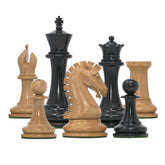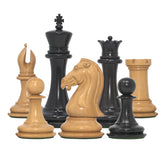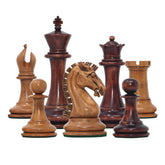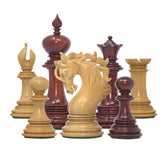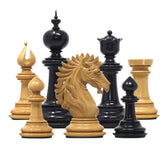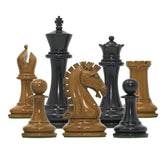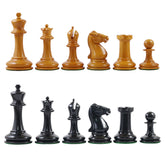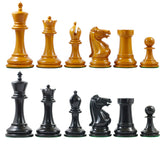The Effects Of Playing Chess On The Human Brain
Chess is popularly referred to as ‘the cerebral game’. Chess Grandmasters down the ages have widely been perceived to be intellectual giants, blessed with extraordinary cognitive skills, amazing powers of concentration, photographic (eidetic) memories, and enviable strategic acumen.
Universal appeal
In recent times, celebrated Grandmasters have even pitted their skills against the most advanced supercomputers of their times – emerging victorious more often than not. The appeal of chess, however, extends far beyond the genius of the Fischers, the Kasparovs, and the Carlsens of the world.
Today, Chess is played enthusiastically by millions around the world, from New Zealand to California and from Norway to South Africa. It is, in its essence, seen to be a rewarding pursuit for those who crave mental stimulation, or seek out intellectual challenges.
Intellectual enhancement
The truth is that Chess is not just a game for those with a superior intellect. it actually helps average enthusiasts to develop their intellect. As an activity, it stands apart from most others, in its ability to simultaneously stimulate both left-brained analytical thinking and right-brained creative problem-solving.
Studies have shown that subjects introduced to Chess at a tender age – some as young as five years – have shown significantly quicker development in their fine motor skills, their understanding of logical cause and effect, their cognitive abilities, and their general life skills, compared to their peers, who are not exposed to the game.
One such study conducted by Dr. Stuart Margulies, and published by the American Chess Foundation in 1991, demonstrated tangible improvement in the average reading ability of a group of kids from a less-privileged section of New York City after they were actively engaged in playing Chess over six to twelve months.
In another oft-cited study conducted in the late ‘90s, 4,000 students in Venezuela showed substantial improvement in their average IQ scores, just four months after they were taught – and regularly made to play – the game of Chess.
Improved decision-making
It is also widely believed that since playing Chess involves strategic thinking and critical decision-making, it has a deep impact on the development of the region of the brain directly responsible for these activities – the prefrontal cortex.
Playing chess, therefore, helps people of all ages to develop foresight, and make better life decisions, in both the immediate and long-term contexts.
Cognitive development
Evidence from hundreds of observational studies carried out on test subjects, clearly demonstrates that Chess has a definitively positive impact on the development of cognitive abilities, particularly among younger age-groups.
Clinical studies have also shown physical evidence that Chess has a beneficial neurological effect on the brain.
Brain scans of subjects who were taught the game and were made to play regularly over a period of time showed significant growth in the number of dendrites – which improve connectivity amongst neurons in the brain – compared to scans taken before they had learned how to play Chess.
As a general rule, improved connectivity between neurons equates to superior cognitive skills.
Chess as therapy
The fact that Chess improves cognitive abilities is medically recognized.
Which explains why it forms an integral part of therapy for patients recovering from brain damage occurring due to accidents or strokes, as well as for those suffering from conditions such as CTE (Chronic Traumatic Encephalopathy), PTSD (Post Traumatic Stress Disorder), and Alzheimer’s Disease.
Playing Chess has also been found to have a calming effect on those suffering from nervous anxiety or schizophrenia.
Relevant to our times
Chess boasts of a rich heritage that has truly stood the test of time. Early versions of the game originated in ancient India and China, where it was popular among the royalty, nobility, and aristocracy – as a strategic exercise in preparation for strategic warfare.
But while Its origins are believed to pre-date the advent of Christianity by a considerable margin of centuries, Chess remains just as relevant and beneficial to both the psychological wellbeing of the present generation and the intellectual development of the future generations of our society.
For more such interesting articles visit at www.stauntoncastle.com
Order Luxury Chess Sets and Pieces Here - www.stauntoncastle.com
HAPPY CHESS!
Sample Block Quote
Sample Paragraph Text
- best benefit of chess game
- chess
- chess book
- chess computer
- chess game history
- chess games
- chess helps to grow human brains
- chess history
- chess meme
- chess pieces
- chess player
- chess products
- chess set
- chess streams
- chess tournament
- staunton castle
- teaching chess
- teaching chess to kid
- The Effects Of Playing Chess On The Human Brain
